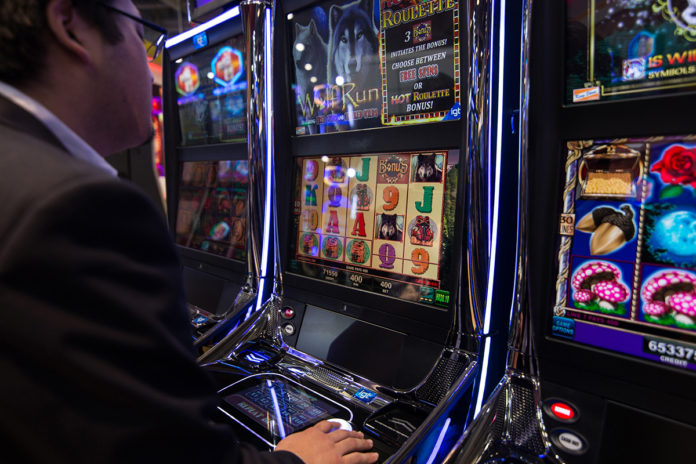Two Integrated Resorts in Japan seem to be the right number. For now. A third one down the line may be an option, according to Grant Govertsen and Praveen Choudray, Managing Directors of Union Gaming and Morgan Stanley, respectively.
But the Japanese Government does not seem particularly keen to rush things at this stage.
“They don’t want to go all [out] and build too many things. Can you do a Strip in the future? Sure. But I don’t think it will be the first thing,” mooted Praveen Choudray.
Moreover, there was social pressure against the approval of the Integrated Resort Promotion Bill last December by the Diet.
“Japan is all about consensus. And getting the problem gambling bill away first is probably the way to go to get the gambling bill approved,” said Govertsen.
Speaking on a panel section entitled ‘The Analyst’s Perspective: Asian Markets Update’ on the first day of G2E Asia 2017 at The Venetian Macao, Govertsen and Choudray offered their perspectives, agreeing that overall there are no favourite contenders yet, and that it is still too early to comment upon taxation and regulation outlook.
“Until we know all the nuts and bolts of the legislation, the location, taxation, and so on, it is premature to say anything about it,” said Govertsen.
But one bet is safe.
“We’re pretty certain that it won’t be a hundred per cent foreign ownership,” said Choudray.
Bidding corporations have acquiesced to taking smaller shares in joint ventures with local, Japanese companies, even though committing ownership structure may put pressure on the return on investment, with the casino operators courting Japan regarding pouring US$10 billion in to develop an IR.
As Choudray explained, because among other things “there is inflation, and labour is expensive in Japan, if you put it all together, it’s not that difficult to get to US$10 billion.”
Govertsen added, “I think that anything could happen from now to September or October when the bill gets down. But you don’t have such expertise in Japanese companies today to design this kind of [mega] structure. You can mention Okada Manila, but it’s just opened,” he said.
Machine versus table
“Pachinko will not necessarily be translated into gaming. But pachislot, which is very similar to the machines [in Macau], might,” said Morgan Stanley’s MD. According to him, this would be reason enough to believe that the “machine market may be big [in Japan].”
Several electronic gaming and slot machine companies exhibiting at G2E Asia 2017, which have been selling to the Macau market for several years, are indeed Japan-based.
“The Japanese are passionately doing several of these machines, but will they be able to use them in IRs? Slot machines are a big business outside Japan, but in Japan itself it hasn’t been figured out yet,” commented Choudray.
Govertsen does not exclude, however, the possibility of a mandate of 40 per cent machine floor for IRs in Japan.
“[In terms of GGR], I think that electronic gaming would be the biggest market. A 50-50 split between table and machines would not be surprising,” the Union Gaming MD suggested.
In what regards table games, a couple of observations have been made.
“Historically, there is a big VIP contingent of Japanese coming to Macau to play Baccarat, some of them having also lived in Las Vegas,” said Govertsen, while Choudray mentioned that Black Jack is also a game the Japanese tend to like.
Pachinko, still a question mark
Allowing pachinko machines or pachislots on IR premises, though, still seems to be the main question. Despite the fact that the “big guys” from the pachinko industry seem to want to get part of the action it is unlikely that the pinball-like machines will pass the door to the gambling floor.
“There may be a bit of a crossing, which could be problematic, but I think they won’t be allowed a cross over,” said Govertsen.
In any case, the Managing Director of Union Gaming added that “the typical pachinko customer tends to be middle class and below, so there is plenty of GGR on the sidelines. When you think about the IR opportunity, it’s going to be a significant number.”
Choudray agreed that “there’s a lot of value there and, naturally, pachinko guys, such as Dynam, want to take part in IR projects.”
Moreover, and despite the fact that it falls into a different game category – labelled entertainment rather than gambling – in what concerns gamblers’ behaviour in Japan “there is no-one with more inside knowledge than the pachinko industry,” Choudray highlighted.
—
Hengqin bid
Speakers raised the prospect of future development of the Macau gaming market, signalling that Hengqin is one of the places to look for diversification and increasing market capacity.
Regarding the possibility of enhancing cross-border influx with the island where the University of Macau is currently located, Goversten said he is all for it.
“These things don’t happen overnight. If it could happen by the time concessions expire in 2021, I think it would be a victor,” he said.
According to Choudray, development is already taking place there, with new buildings already erected but as yet uninhabited, with the possibility of IRs bringing further development to the area.
Moreover, it is an option for diversification, said Govertsen.
“I think non-gaming has to happen, and the reality is that the diversification we are going to see will happen at the lower level. To go back to the discussion about Hengqin Island, to really diversify Macau, you need land,” he concluded.
























